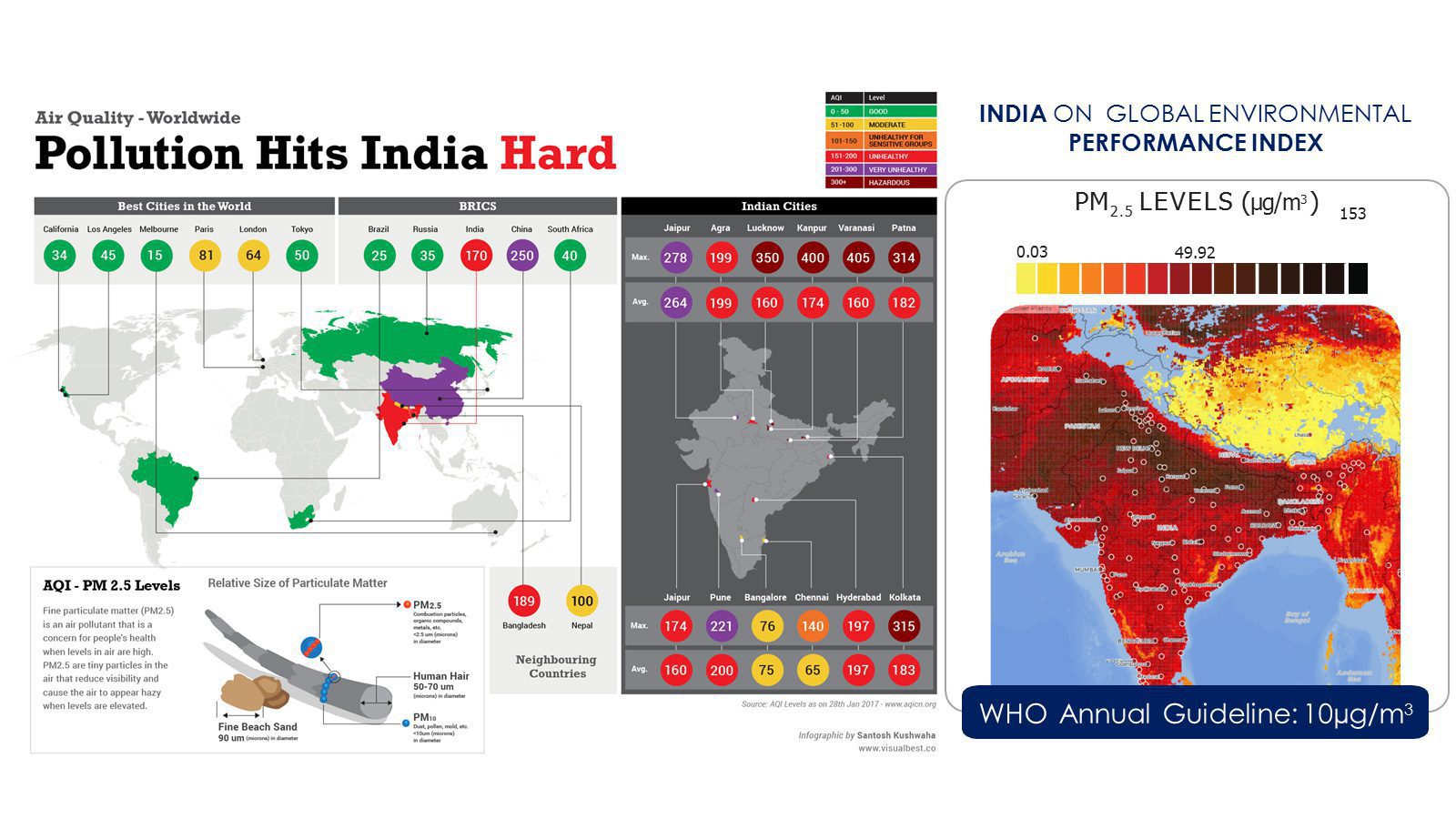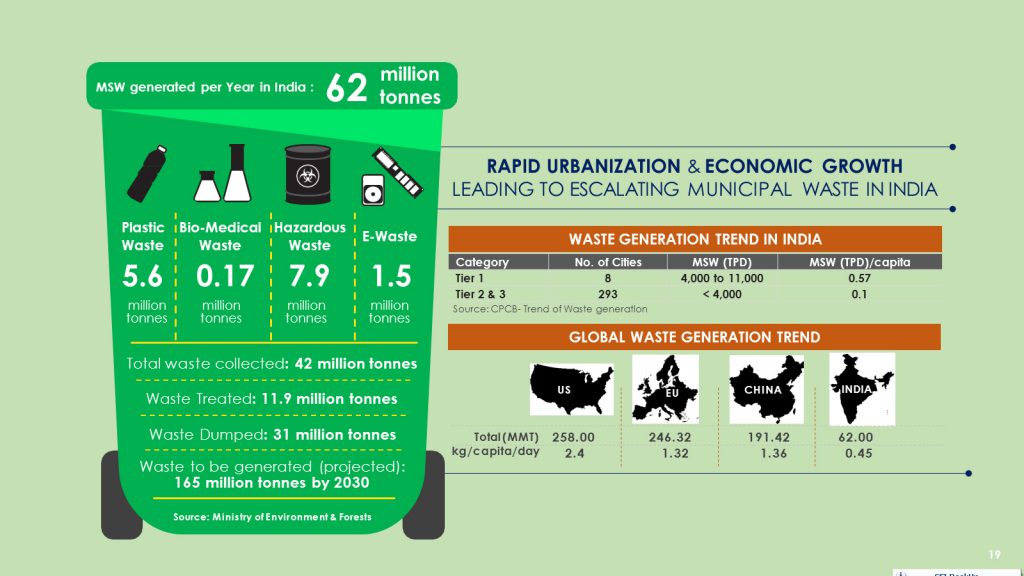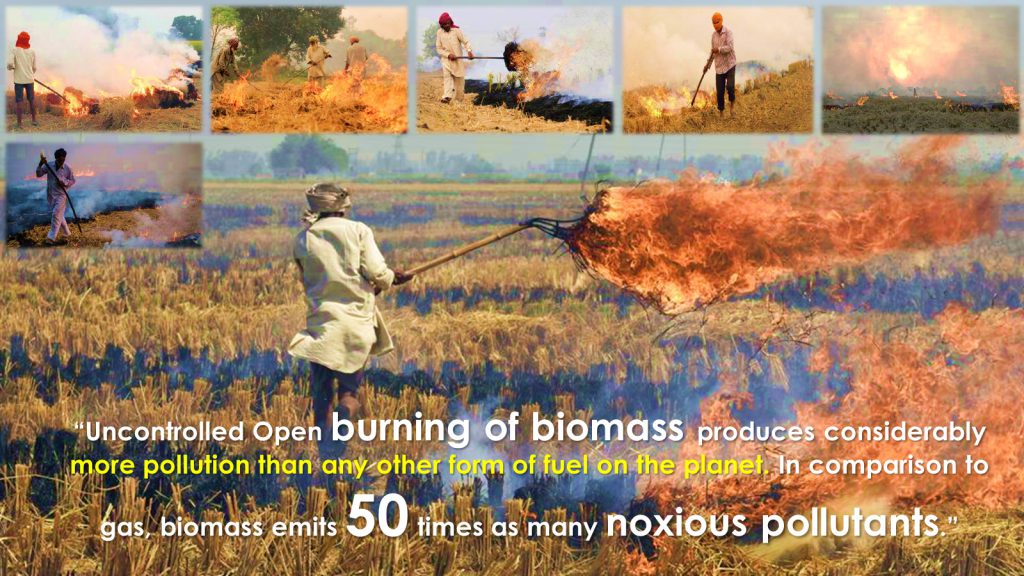The Problem
India generates 62 million tonnes of Municipal Solid Waste (MSW)/annum. 69% of generated MSW is collected, and 28% of this collected waste is treated. The rest is dumped onto open landfills.
Every year, we generate 450 – 500 million tonnes of agricultural waste. 240 million tonnes of this waste remains un-utilized, and is burnt in the fields.

The use of fossil fuels in power and heat generation, cooking and transportation is taking a huge toll on the environment and human health. At the same time, depleting fossil fuel levels are a reality of our future, and pose a significant threat in terms of energy security, especially for developing nations such as India.

Air Pollution and carbon levels are rising globally, with India ranking among the highest impacted countries. According to a WHO 2018 Report, 14 of the world’s 15 most polluted cities in the world are in India while a Lancet report ranked India highest in air pollution related deaths in 2015, with an astounding 2.51 million deaths attributed to rising air pollution, specifically PM 2.5 levels.
Unscientific disposal and open burning of waste including MSW and agricultural waste are among the key contributors to the problem of rising air pollution and PM 2.5 levels in India.


The country generates 62 million tonnes of MSW currently, of which only 69% is collected. A mere 28% of this collected waste is treated, while the rest is dumped onto open landfills.
Rapid urbanization and economic growth are all set to further escalate this problem with quantum of MSW generated slated to go up by 165 million tonnes/annum by 2030.
In rural India, agricultural activity results in the generation of 450 – 500 million tonnes/annum of agricultural waste. Of this, 240 million tonnes of agricultural waste remains un-utilized, and is burnt in the field.
Besides its implications on the environment and human health, improper disposal of waste is also an economic loss for the nation. Waste is a resource that can be harnessed in multiple ways including the generation of clean energy.
At an overall consumption level, India’s energy consumption is projected to grow the fastest among all major economies by 2035, according to BP Energy Outlook.
Given rapidly rising energy needs on one hand, and environmental issues as well as economic implications of dependence on imported fossil fuels, it is imperative for the country to tap into its full potential for renewable energy, to effectively reduce use of fossil fuels and promote energy independence.
